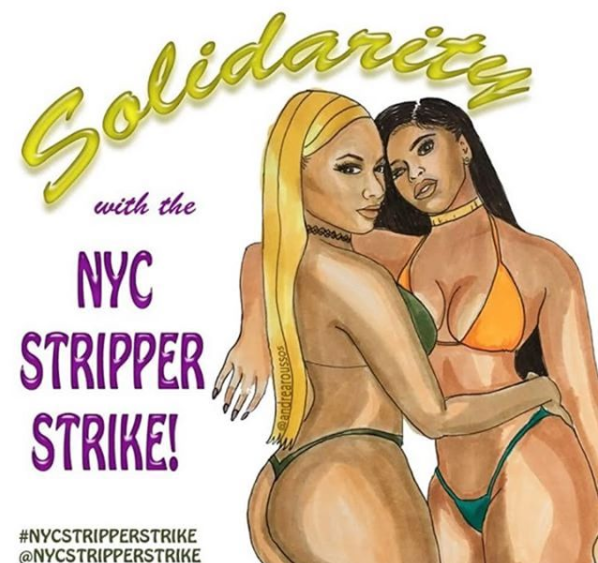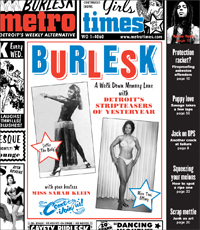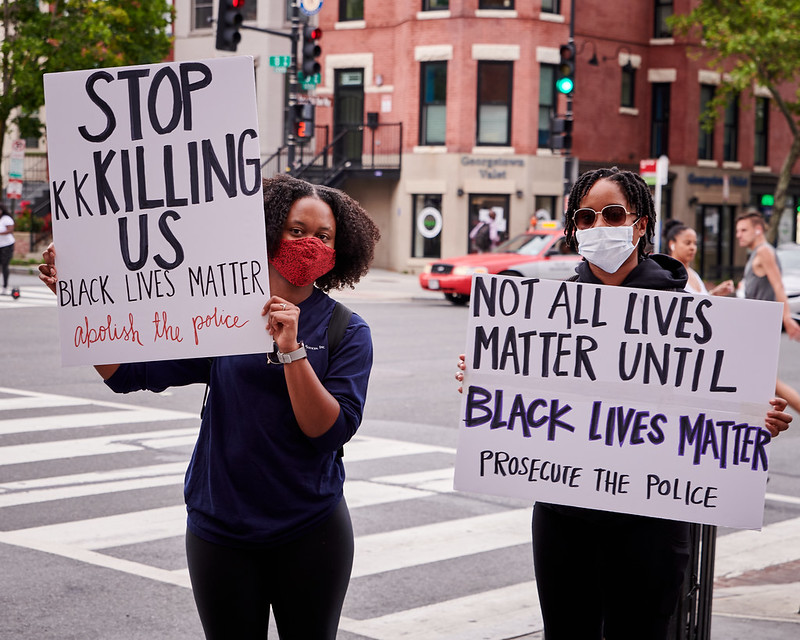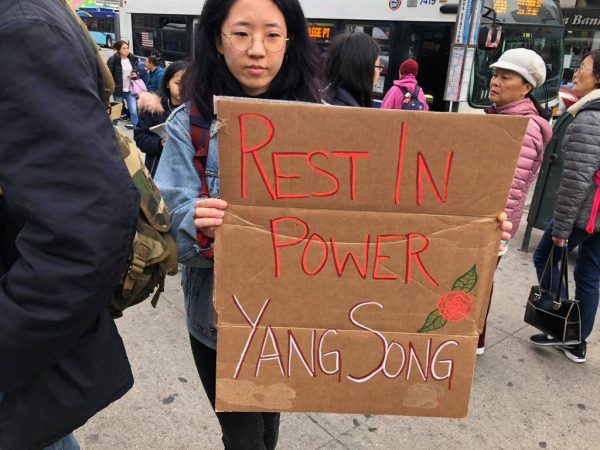Why The #NYCStripperStrike Is So Relevant And So Long Overdue

A slightly different version of this piece was originally posted on Akynos’ blog, blackheaux, on November 8th
A personal history of being a Black stripper
It’s about fucking time! That’s all I can say about this stripper strike organizing.
I am excited to see more and more gentlemen’s club/exotic dancers taking this business seriously enough to take matters into their own hands. I think for far too long those of us in the adult entertainment industry have gotten engulfed in the socially acceptable invalidation of stripping as actual work, so that we’ve allowed ourselves to neglect so many of the labor violations, discrimination, and downright illegal actions by management, patrons, and staff that just couldn’t fly in other legal businesses.
I remember seeing dancers getting sexually and physically assaulted by patrons, while the bouncers employed because our naked bodies afforded them that job would do absolutely NOTHING. I recall one time a patron ejaculated on my ass as I gave him a standing lap dance at the bar. I went to the bouncer on duty at the time. He shrugged his shoulders and dismissed me.
The male staff who were employed by the club as stage managers or bouncers were also known to sexually violate us. Although they were employed by the same space we all occupied at the same damn time, they felt they were entitled to free feels and who knows what else from the dancers. If it was a nice day, they’d just insult you for even working in such a grimy industry.
Then there was the highway robbery in fees the club would charge the dancers who were coming in there to work—i.e., bring the establishment business. When I was in the game in the 90s, house fees were only just being implemented. They went from $5 to $20 in what seemed a matter of weeks.
Public perception often shapes law and policy, and vice versa. Without legal precedent or social acceptance we become prey to shoddy business practices.
I was 17 years old when I entered the clubs. I started with Al’s Mr. Wedge in the Bronx. It was the club I worked at exclusively then for a few reasons: Another club, The Goat, was closed by the time I got in the game. And besides, the legendary talk around this club sounded as if it was just too much for my bougie ass. For some reason, I just didn’t like Golden Lady, because its size and structure intimidated me.
And all my attempts at auditioning at clubs like Sue’s Rendezvous and whatever the name of the juice bar near Dyre Ave proved fruitless. I was too dark.
I recall once I went into Sue’s with a friend of mine, this mixed chic by the name of Jackie. Tall, light skinned, sorta looking like a young Mariah Carey, she was half White and Black. I went into Sue’s with her with the confidence that I would be allowed to dance in another club and increase my chances of making money. Young and naive, it didn’t dawn on me that when they told me Jackie could audition and I couldn’t it was the result of discrimination against my complexion.
Jackie ended up working at the high-end clubs in the city. Me and my Black ass had to keep it gutter and stay where they were not too picky.
I want people to stop being surprised that racism, colorism, and other biases against womxn (and Black people/or anyone with “dark” skin) exist. Determining who is worthy of making a living can be as superficial as how far from Whiteness they appear to be.
This shit is real.
Racism is real.
And colorism is also as fuckin real. The world is not existing in a post-racial/post-colorism mindset. It will never ever be like that. Now with racist humans writing code, even algorithms are becoming racially biased.
 When I see a black woman in a filmy something or other, or clutching feathers, or posed elegantly, I have to click whatever it is to see where she came from. That’s what happened when I stumbled onto this story about burlesque dancers in the Motor City on the
When I see a black woman in a filmy something or other, or clutching feathers, or posed elegantly, I have to click whatever it is to see where she came from. That’s what happened when I stumbled onto this story about burlesque dancers in the Motor City on the 
